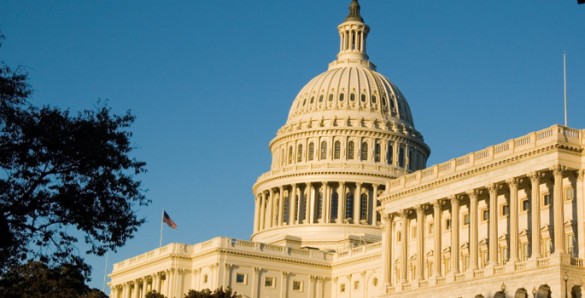
Policymakers in Washington, D.C., increasingly are earning the distrust of the American people, and the current impasse that led to a government shutdown is no exception, according to Marc Hetherington, a political science professor and author of two books on trust and polarization in American government.
A third book with the working title Why Washington Won’t Work is near completion with co-author Thomas J. Rudolph of the University of Illinois.
“The only problem is that Congress keeps doing increasingly outrageous things, which requires us to continually rewrite chapter one with the most recent and shocking account,” says Hetherington. “I don’t know how many times I’ve redone the opening anecdotes to the book.”
While government was once seen as a set of institutions designed to solve entrenched problems, it no longer becomes a viable option when it loses the trust of the people.
“Congress isn’t doing anything to cause people to feel good about what they’re doing,” he says. Widening polarization between the left and the right means public consensus never develops behind issues. “What we end up with is terrible gridlock.”
The increasingly “mean” environment in Washington differs from a generation ago when opposing party members often were friends. “[rquote]If you start to see the other side as less than human, then you don’t make compromises with them,” Hetherington says.[/rquote] A second problem is that members of Congress spend a majority of their time in their districts running for re-election instead of working through problems with colleagues in Washington.
“As someone who tries to teach young people about the virtues of public service,” he adds, “it is very discouraging.”
Hetherington is available for media interviews about the government impasse. He is the author of two books about the American electorate, Why Trust Matters: Declining Political Trust and the Demise of American Liberalism (Princeton University Press, 2005) and Authoritarianism and Polarization in American Politics (Cambridge University Press, 2009).